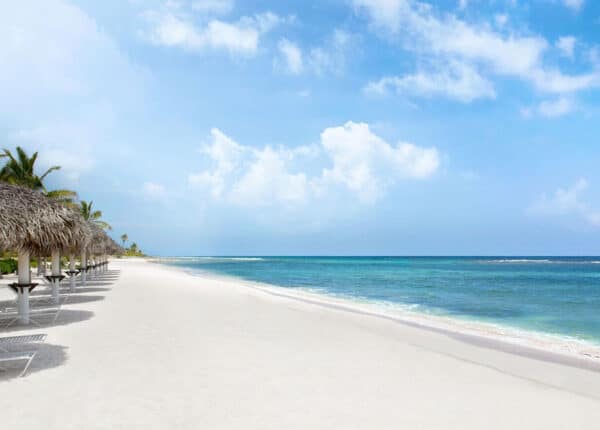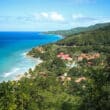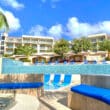Practical examples for a Caribbean “smart” approach
By Hugh Riley
CJ Contributor
A new world is emerging. Worldwide destinations are becoming “smart”. In this new smart world everything is connected, enabling the physical, digital and social domains to unite creating a new hybrid ecosystem. In this new environment, individuals interact, play, communicate, collaborate and share information in new ways. Tourism businesses and destinations need new principles, policies, processes and objectives, sustainable world strategies, comprehensive planning, integrated models and globally effective solutions to adapt to this new world.
Although some may think that the simple integration of technology within a tourism destination is sufficient to be classified as “smart”, that’s only the tip of the iceberg. As destination managers, we must acknowledge the multidimensional construct of smartness to create value for all and enhance competitiveness. Here’s how we can try to achieve this.
Innovation
Innovation stimulates smartness and is essential for the competitiveness of destinations. One way to inspire innovation is through establishing a connection in multiple communities to develop a smart nation economy.
One destination reportedly adopting this approach is Tahiti. Similar to the Caribbean, the Tahitian islands are small and closely geographically situated creating an opportunity to link various communities together to develop a smart nation.
Last year, French Polynesia’s Ministry of Tourism introduced a new partnership with Tahiti Innovation Labs and Florida based Travel Startups Incubator to create a Tahiti Smart Tourism Initiative. The project goals included expanding free Wi-Fi access beyond resorts increasing visitor arrivals and by digitalizing the guest experience, and creating new opportunities for local job growth and economic development. The strategy relies heavily on creating a more dynamic multi-layered Internet pillar.
With the installation of fiber optic connectivity and telecommunication companies developing peer-to-peer “mesh” networks which don’t need cellular service, the usage of more apps is enabled and the quality and reach of service is also enhanced. The Caribbean can adopt this approach to develop a digital eco-system to attract consumers who depend on a fast and free Internet to navigate their travel journey and communicate with their social networks.
Moreover, imagine the capabilities of data obtained by new digital tools to better understand tourism traffic flows, service quality issues and emergencies. We can use innovative tools to collect, process and organize large amounts of data. This data can be accessible to creative communities and research institutions to foster further innovation to contribute to the success of smart tourist destinations.
Social Capital
Social capital consists of networks with shared interests, values and understandings that enable cooperation within or among groups. Strong social capital in geographical areas involves the presence of various networks between people, organizations and communities. Collaboration and cooperation between these networks support collective knowledge and competitiveness. Let’s look at Mexico for instance. During late last year, Cozumel was announced to become Mexico’s first “Smart Tourist Destination”. This case is a useful example of cooperation between two organizations. The project that was originally inspired from an initiative utilized by Spain’s Ministry of Tourism, was envisioned to provide the destination with a fresh makeover within the areas of accessibility, innovation, sustainability and technology. Spain and Mexico began working together by sharing each other’s strategies for tourism development; Mexico shared their “Pueblos Mágicos” (Magic Towns) initiative, and Spain shared with Mexico the “Smart Destination” project in which the main goal is to foster tourism development through technology and sustainability.
With this project, the first orders of business were to enhance the communication infrastructure, develop a technological platform that can enable proper interaction between the three levels of government along with the tourism service providers, and therefore develop new innovative business and operation models.
Human Capital
Human capital is a necessary component of smart destinations. It embodies the knowledge, skills, competencies and attributes from individuals that enable the development of personal, social and economic well-being. According to Boes, Buhalis and Inversini, smart destinations include hubs where human capital is developed in a virtuous circle.
These networks of connected people collaborate, cooperate, innovate and co-create to become smarter. Research also shows that areas with an educated workforce and a great number of entrepreneurs constantly driving innovation, result in a higher economic growth rate.
Utilizing this concept is the World Cities Network initiative. World Cities Network is an open and independent body developed to improve the resilience of cities. The organization facilitates the sharing of ideas between city leaders and professionals internationally across the real estate, technology, design, and urban infrastructure industries. World Cities Network attracts professionals who understand that by coming together and sharing experiences, more positive change can occur at a faster pace. They provide a learning network where ideas can be shared in a confidential and neutral environment. After launching in October 2012, World Class Network has obtained a high level of interest and attracted a range of leaders and experts from around the world.
There is an opportunity for a similar network to be created for the Caribbean that would attract knowledgeable people and individuals in different disciplines to share ideas to improve the intelligence of the destination.
Final thoughts
There is definitely potential to develop the Caribbean as a smart tourism region. However, to get there, there is some work to be done. As the focus of smart cities is on its residents, smart tourism destinations have to incorporate ways to improve the tourist experience, while simultaneously improving the quality of life for local residents. These two priorities need an inclusive ecosystem design, which can be accomplished by integrating all components of the smart tourist destination. Although this blog post mentioned only three components, there can be other areas worthy of exploring.
Hugh Riley is the secretary general of the Caribbean Tourism Organization. Follow his blog at www.hughriley.org.







